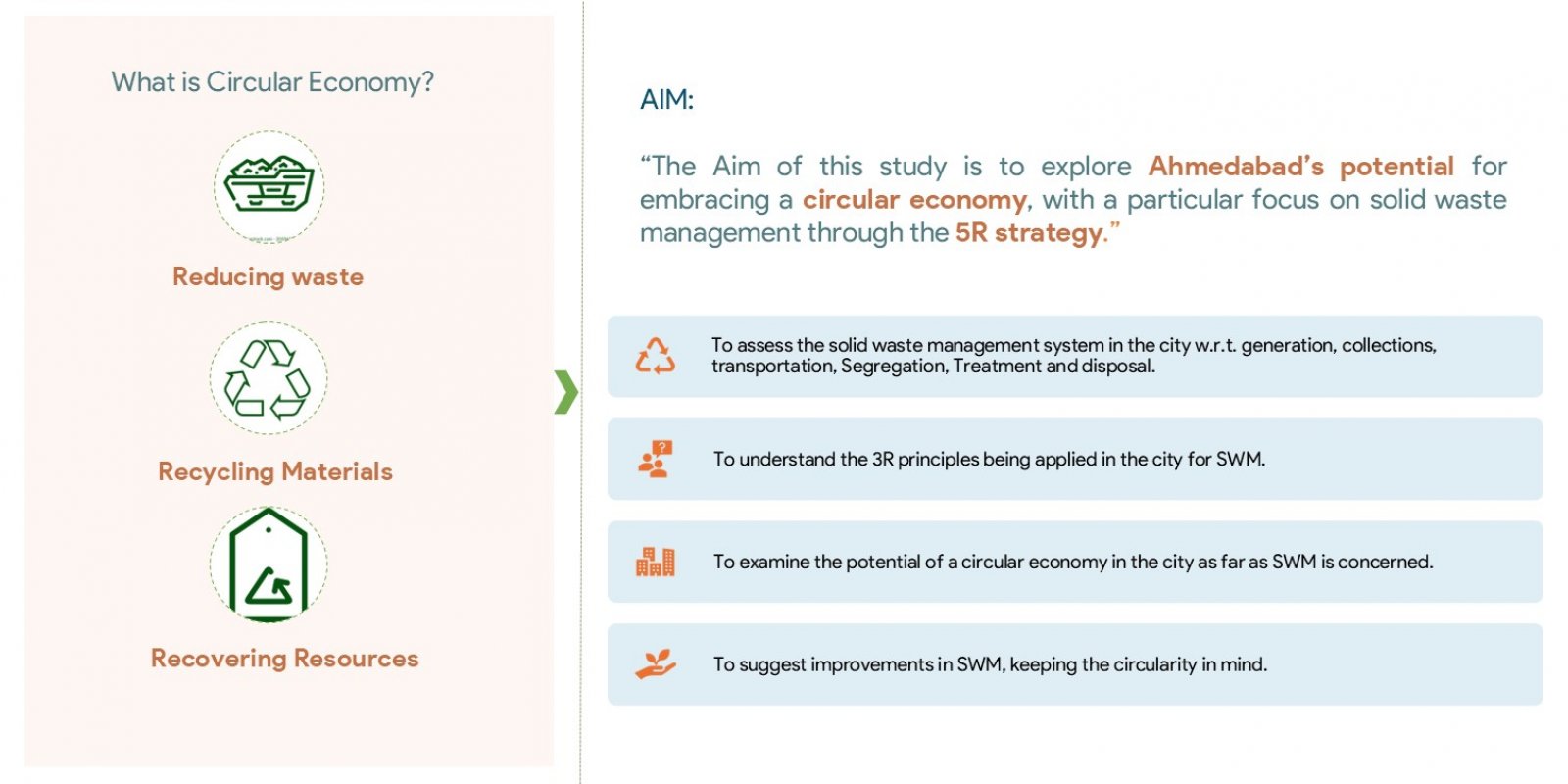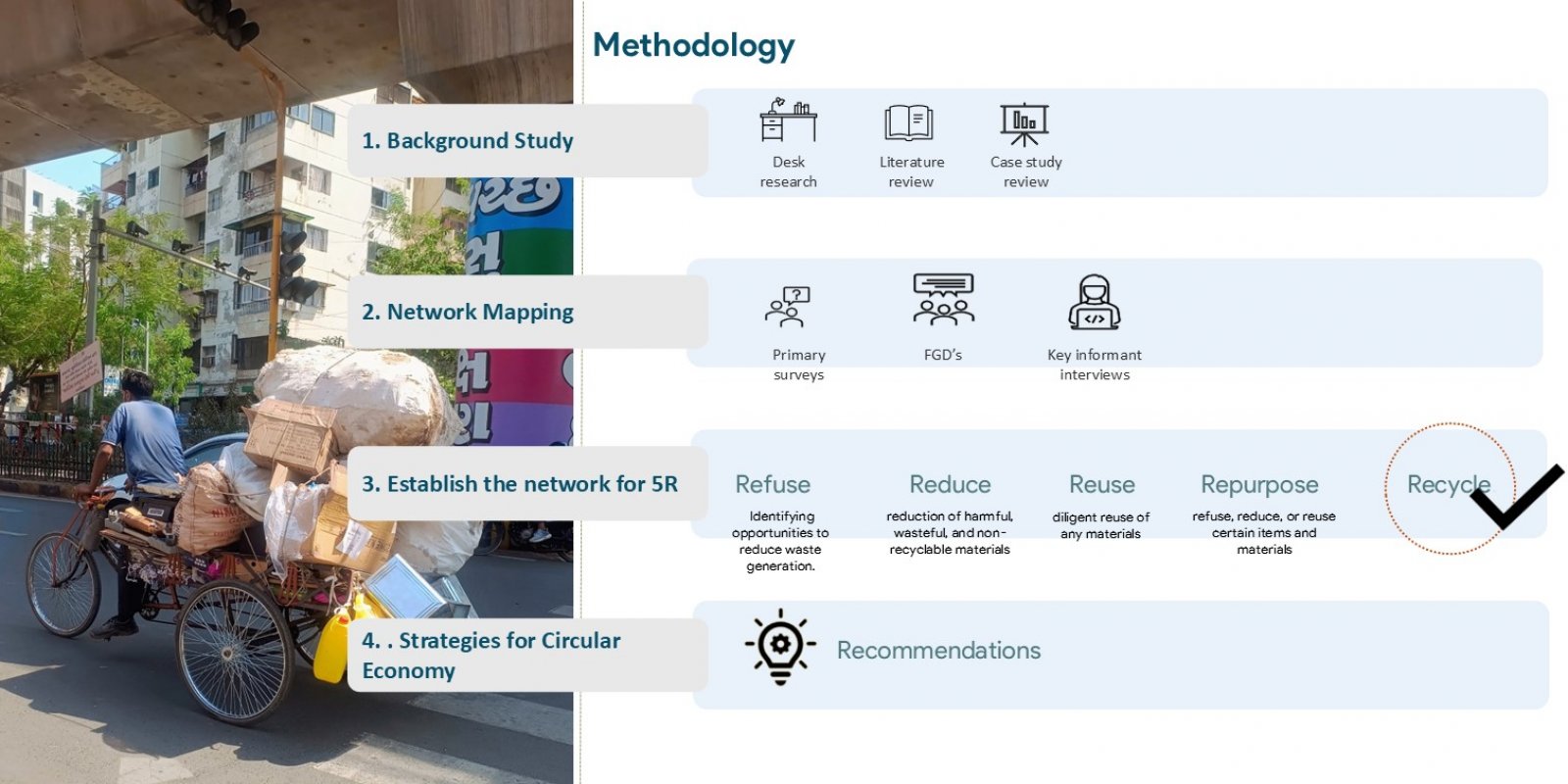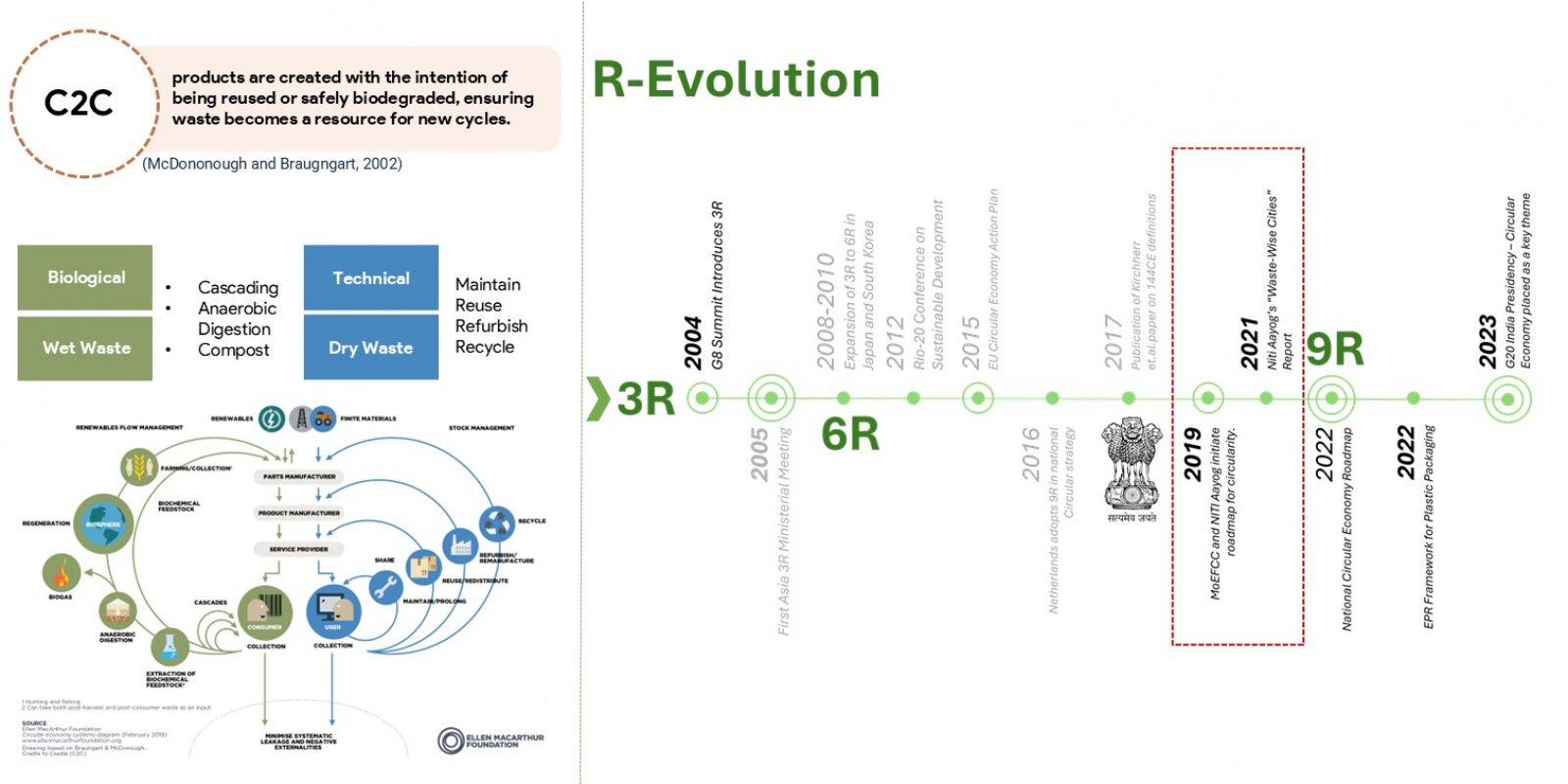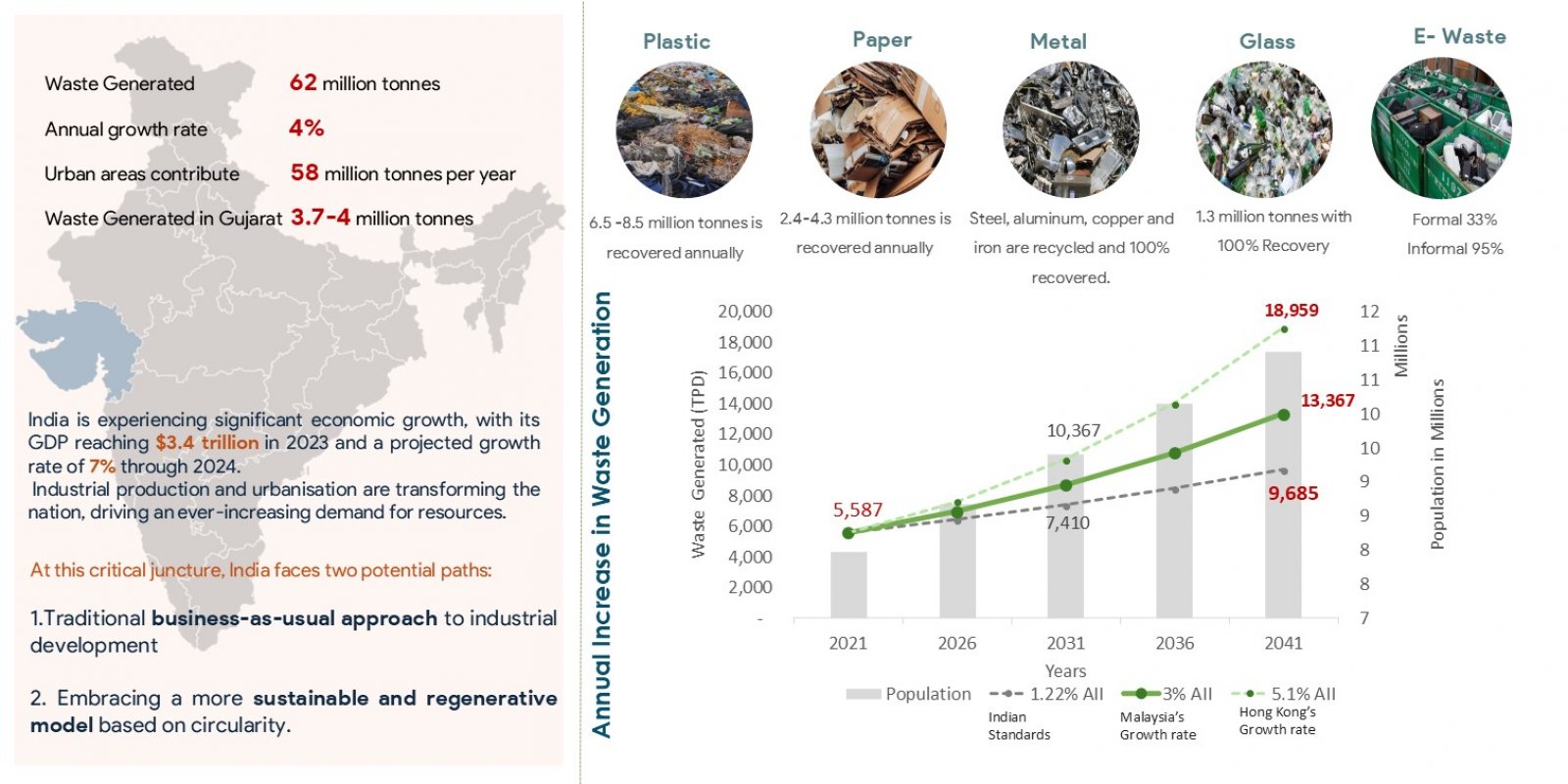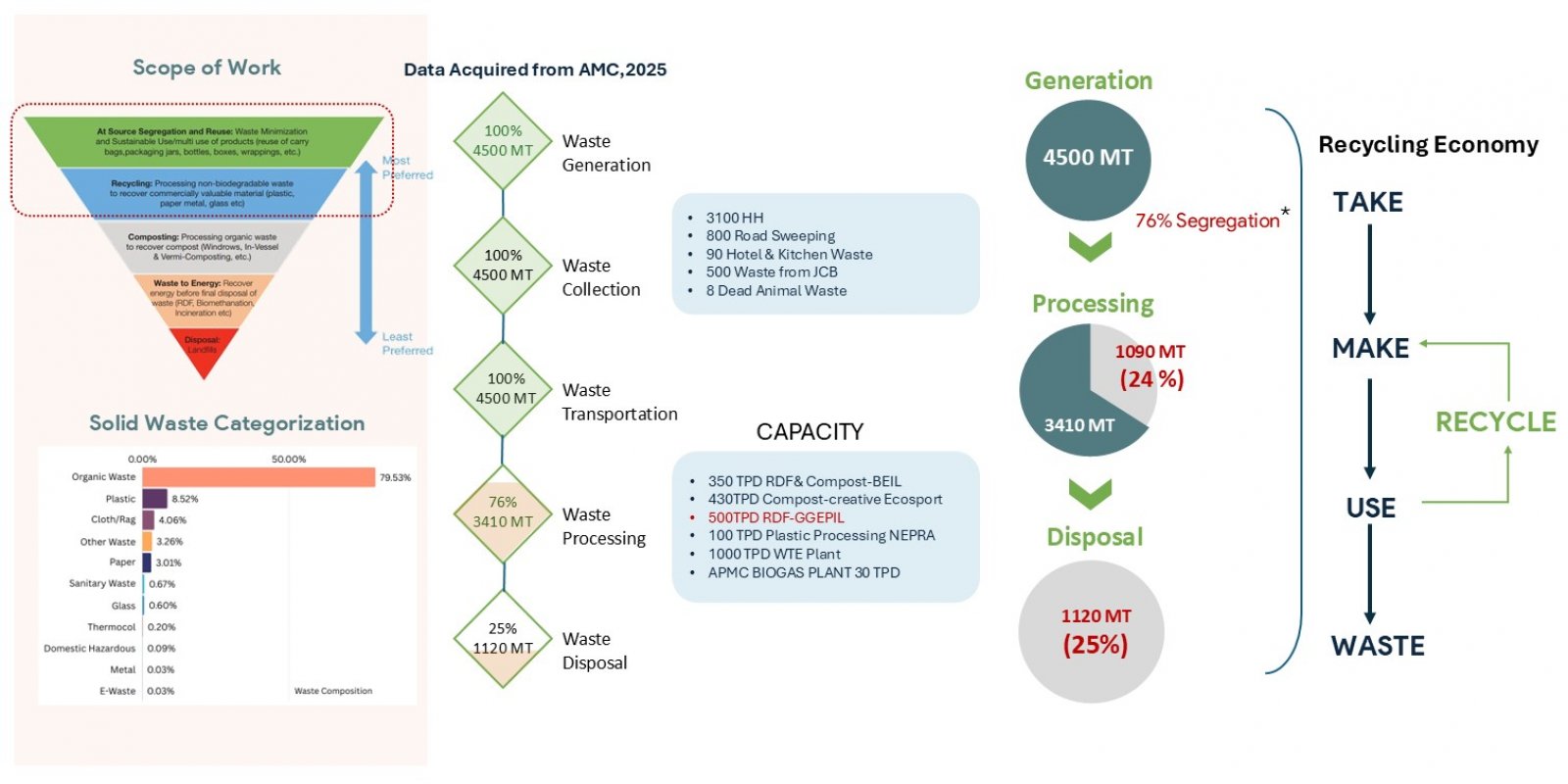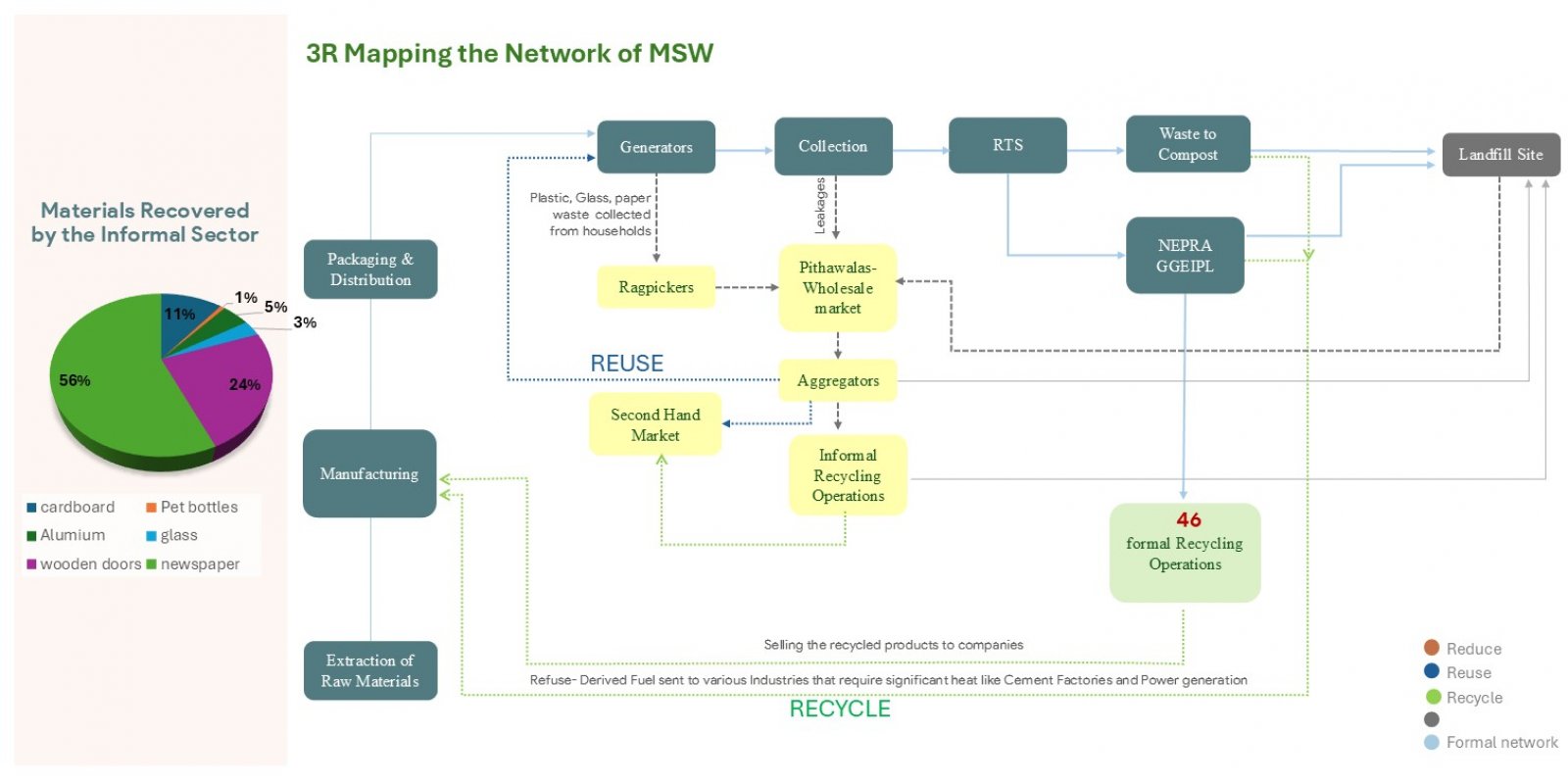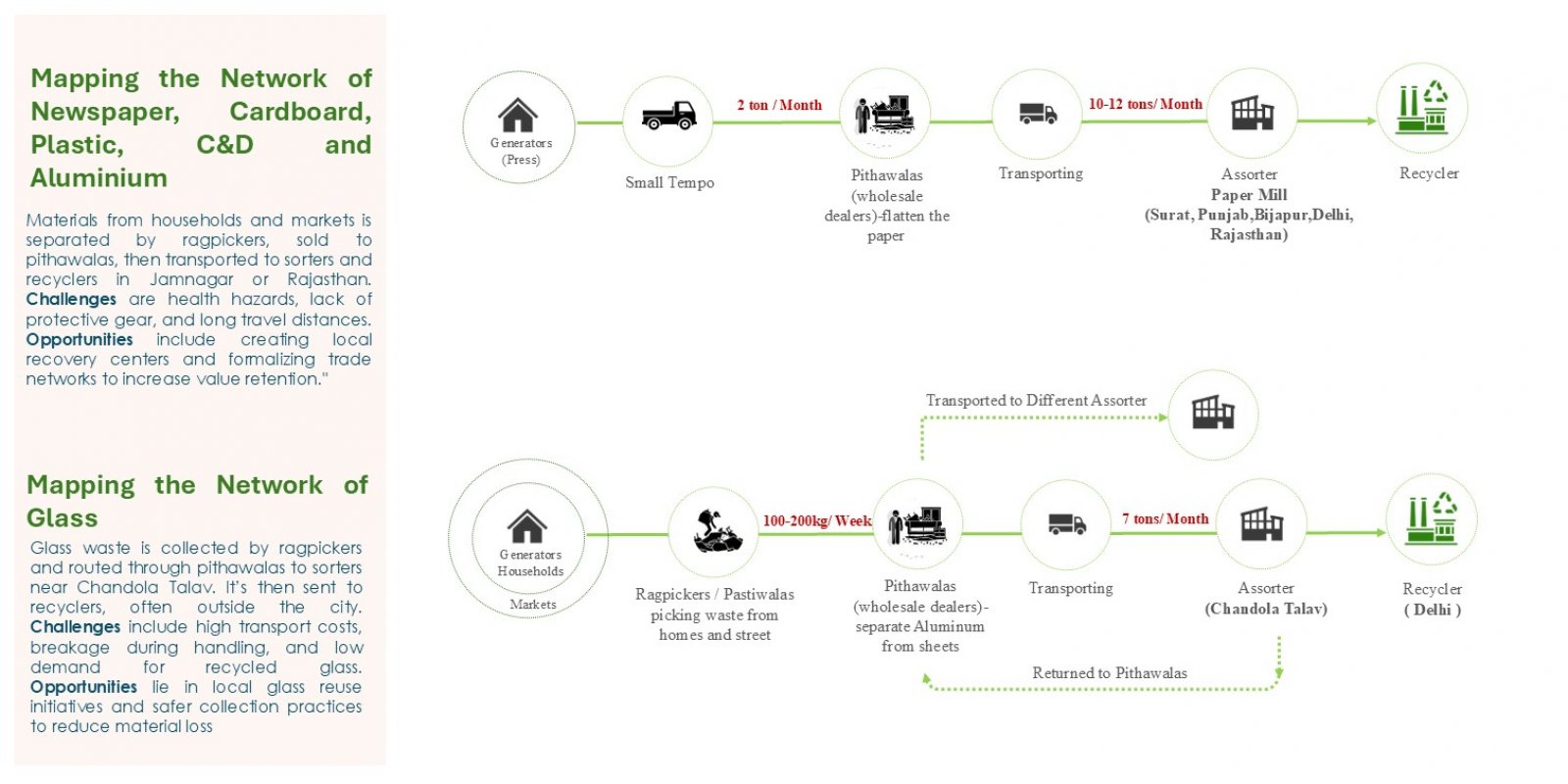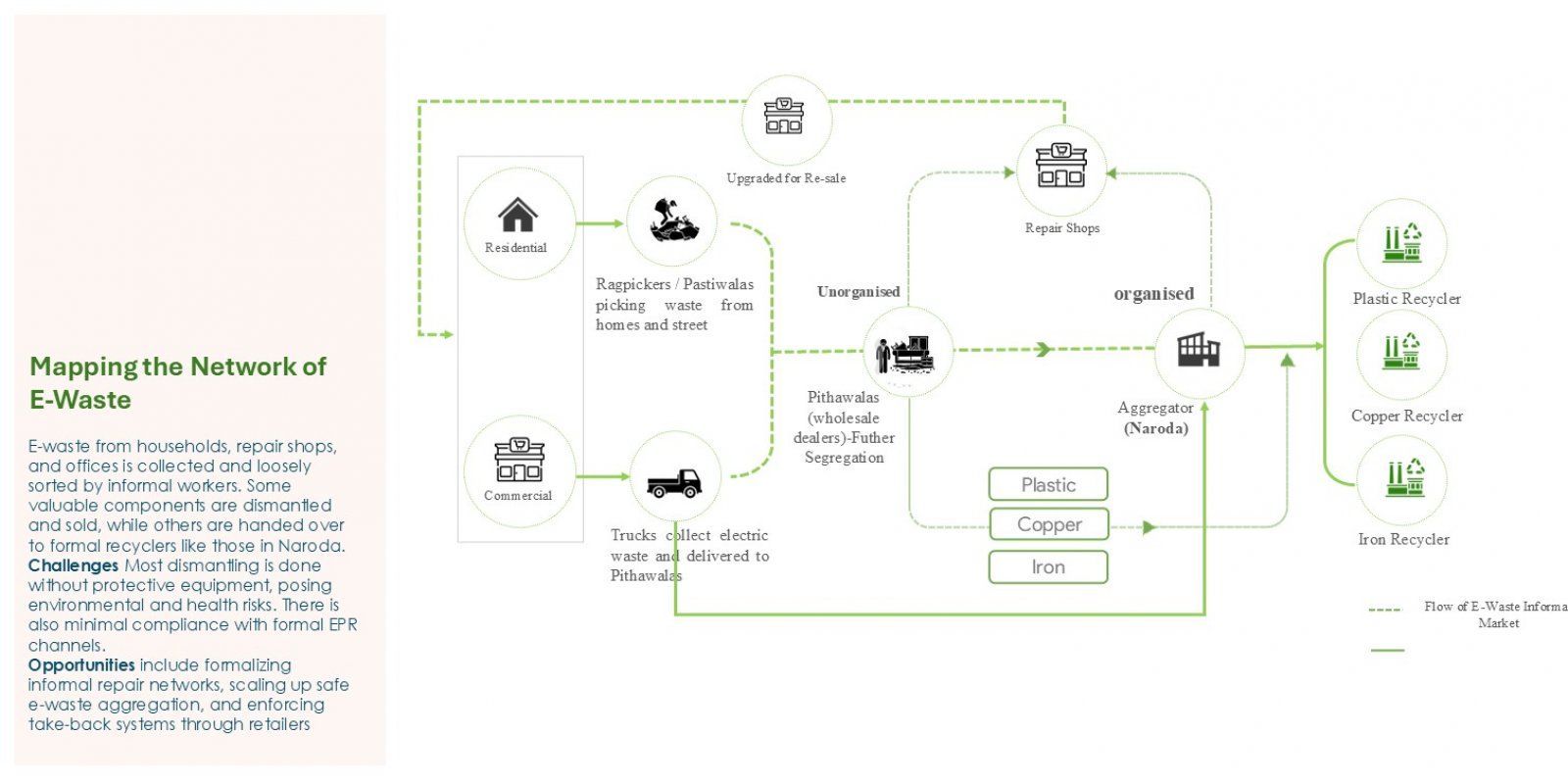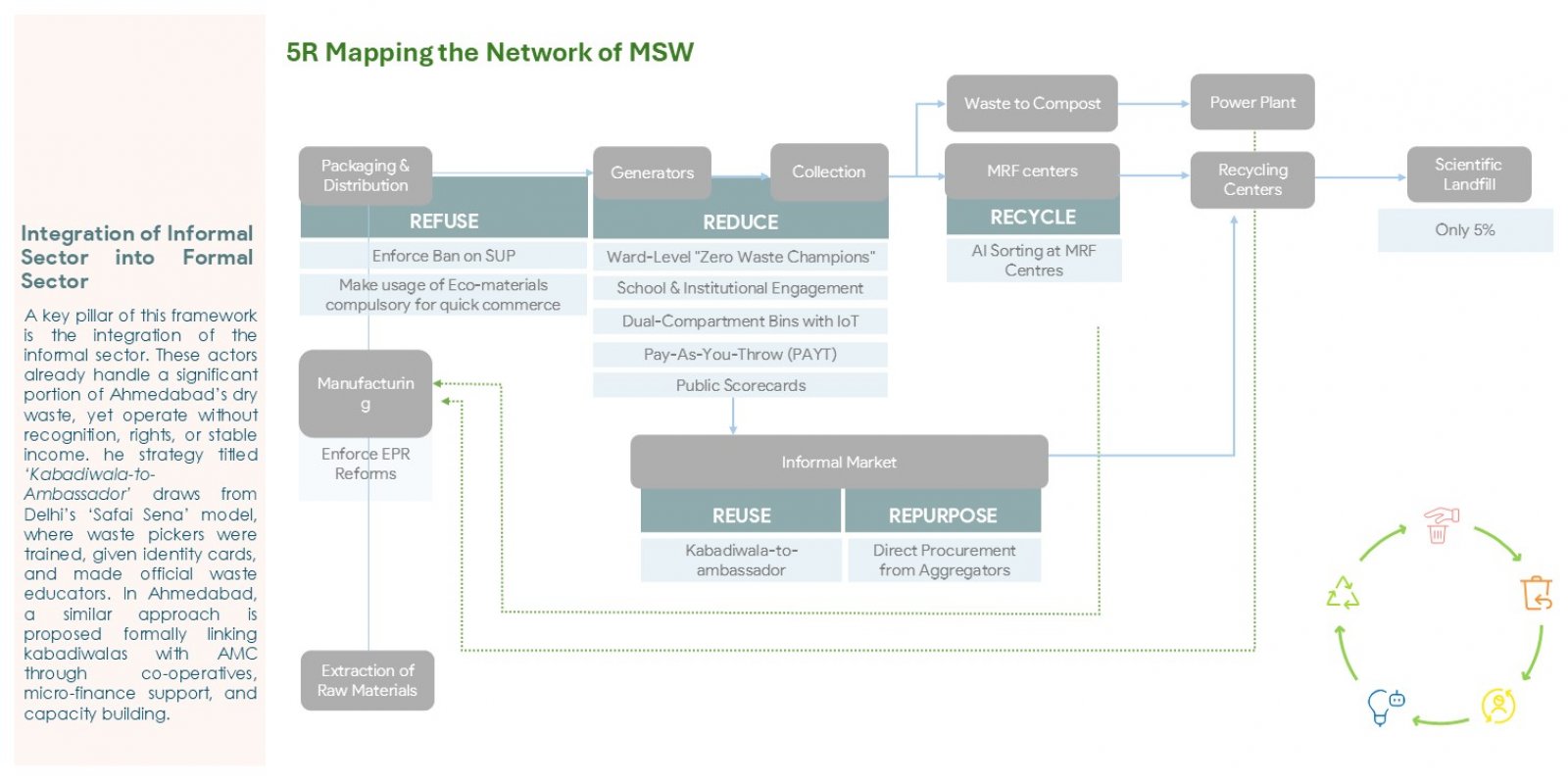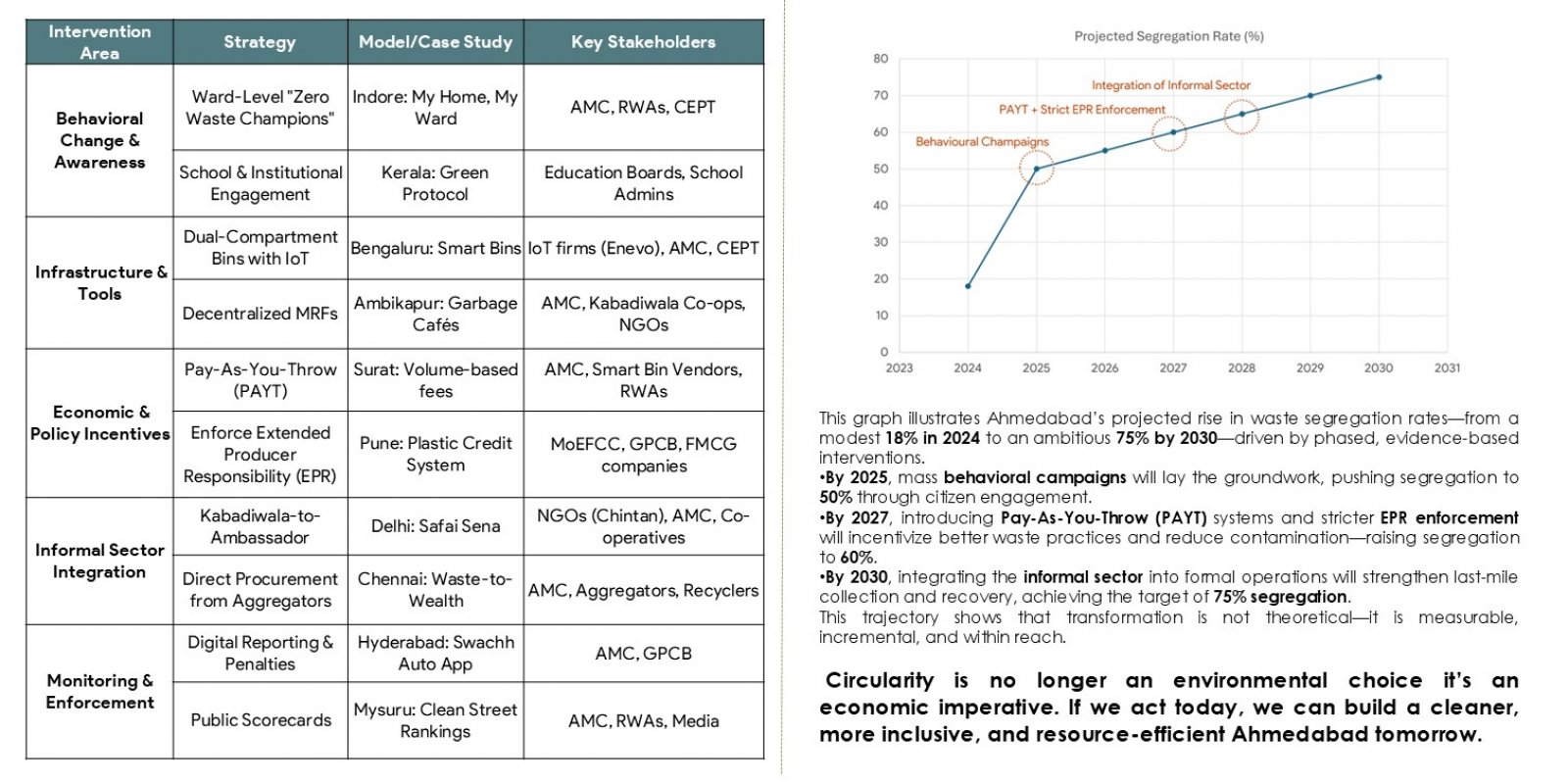Your browser is out-of-date!
For a richer surfing experience on our website, please update your browser. Update my browser now!
For a richer surfing experience on our website, please update your browser. Update my browser now!
This study explores the potential of transitioning Ahmedabad’s municipal solid waste (MSW) system toward a circular economy by tracing material flows and evaluating the application of 3R (Reduce, Reuse, Recycle) and expanded 5R (Refuse, Reduce, Reuse, Recycle, Recover) strategies. Ahmedabad, a rapidly urbanizing Indian city, generates approximately 4,000 metric tonnes of waste daily, much of which is currently managed through linear disposal systems. Through a detailed assessment of waste generation, segregation, collection, processing, and disposal mechanisms, this research identifies key material flows such as plastics, paper, e-waste, glass, aluminium, wood, and organic waste and maps the formal and informal networks facilitating their recovery. The study highlights the critical role of the informal sector, especially kabadiwalas and ragpickers, in maintaining material circularity despite systemic challenges. Using policy analysis and field insights, the research uncovers significant operational bottlenecks such as poor source segregation, low demand for recovered materials, and weak institutional integration. Based on these findings, the study proposes a structured 5R framework tailored to Ahmedabad’s context, aligned with national circular economy policies and the city’s Zero Waste vision. The recommendations aim to enhance resource recovery, improve livelihoods, and guide Ahmedabad’s transition toward a sustainable, inclusive, and circular waste management future.
